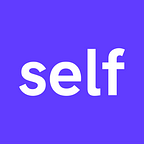Decentralized Internet & User Privacy
In today's digital age, privacy has become a growing concern for internet users worldwide. As technology advances and more personal data is being collected, stored, and shared, individuals are increasingly worried about their online privacy. Web3 decentralization has emerged as a powerful solution to address these concerns, offering a promising framework that prioritizes user privacy and data protection. In this article, we will explore the major role of Web3 decentralization in safeguarding user privacy.
Web3 refers to the third generation of the internet, where decentralization and blockchain technology take center stage. Unlike its predecessors, Web1 and Web2, which were primarily controlled by centralized entities such as corporations and governments, Web3 aims to shift power back to the users by enabling peer-to-peer interactions and removing intermediaries.
One of the fundamental aspects of Web3 decentralization is the use of blockchain technology. Blockchain is a distributed ledger that records transactions across multiple nodes in a network. This decentralized nature of blockchain eliminates the need for a central authority to verify and authorize transactions. Instead, it relies on consensus mechanisms and cryptographic algorithms to ensure the integrity and security of data.
By leveraging blockchain, Web3 applications can provide users with greater control over their personal information. Traditional Web2 applications often collect vast amounts of user data, which can be monetized or exploited for targeted advertising. In contrast, Web3 applications prioritize privacy by allowing users to store and manage their data securely on the blockchain. Users can choose what data to share and with whom, reducing the risk of unauthorized access or misuse of personal information.
Furthermore, Web3 decentralization reduces the reliance on centralized servers and data centers. In Web2, user data is typically stored on centralized servers owned and controlled by service providers. This centralization creates a single point of failure and makes user data vulnerable to security breaches and hacking attacks. In contrast, Web3 decentralization distributes data across a network of nodes, making it significantly harder for malicious actors to compromise the system. Each node stores a copy of the blockchain, ensuring redundancy and resilience against attacks.
Another crucial aspect of Web3 decentralization is the concept of self-sovereign identity. In Web2, users often have to create accounts and provide personal information to access online services. This centralized identity system poses risks, as user data can be exposed if a service provider's database is breached. Web3, on the other hand, enables users to have full control over their identities through decentralized identity solutions. With self-sovereign identity, users can selectively disclose personal information without revealing their entire identity, enhancing privacy and minimizing the risk of identity theft.
Web3 also promotes the use of encryption and zero-knowledge proofs to protect user privacy. Encryption ensures that data transmitted between users and Web3 applications is secure and unreadable to anyone without the proper decryption keys. Zero-knowledge proofs enable users to prove the validity of certain statements or transactions without revealing the underlying data. These cryptographic techniques provide an additional layer of privacy and confidentiality, making it harder for third parties to eavesdrop or extract sensitive information.
In conclusion, Web3 decentralization plays a vital role in protecting user privacy in the digital age. By leveraging blockchain technology, self-sovereign identity, encryption, and zero-knowledge proofs, Web3 applications empower users to have greater control over their personal data, reducing the risks associated with centralized data storage and unauthorized access. As the adoption of Web3 continues to grow, we can expect a paradigm shift towards a more privacy-centric internet, where individuals have the power to safeguard their online identities and information.
Download ⬇️ Self Crypto Browser App from Google Play Now to Protect your Privacy and browse Web3.
